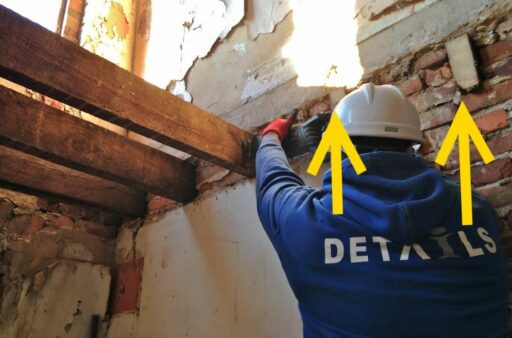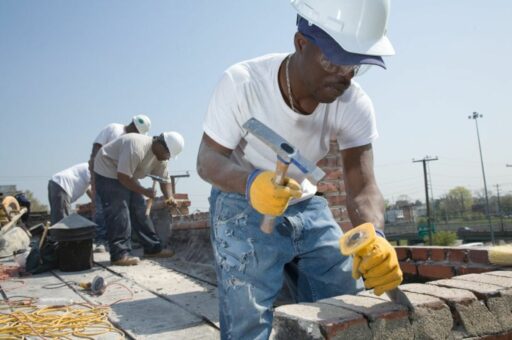Navigating the complexities of obtaining a general contractor license in New York City can be challenging due to the unique structure of licensing requirements. Unlike many states that offer a single, statewide license, New York defers to local municipalities to set their own standards for contractors. This article provides a comprehensive guide on how to become a licensed general contractor in New York, highlighting the steps involved, local laws and regulations, and the importance of staying informed about the ever-changing landscape of construction industry regulations.
Key Takeaways
- New York does not require a statewide general contractor license; instead, licensing is managed at the city level, with local municipalities setting their own criteria.
- Three specialist professions—Asbestos Removers, Crane Operators, and Elevator Contractors—require a statewide license in New York.
- Prospective general contractors in New York City must navigate specific local requirements, such as submitting a basic license application to the DCWP, passing an exam, and providing documentation for residency and insurance.
- General contractors may need additional permits, such as a health permit from the New York Department of Health and Mental Hygiene, depending on the nature of their projects.
- Contractors licensed in New Jersey or other states must understand the reciprocity and license recognition policies when considering work in New York, as these can vary between municipalities.
Understanding New York’s Unique Contractor Licensing Structure

The Role of Local Municipalities
In New York, the path to becoming a licensed general contractor is heavily influenced by local municipalities, each with its own set of rules and requirements. Local laws may dictate the need for specific licenses, insurance prerequisites, and surety bond requirements, tailored to the unique needs of the community and the type of work being performed.
- Buffalo, for example, mandates that home improvement contractors obtain a license from the Department of Permit and Inspection Services before offering services.
- In New York City, a home improvement license necessitates a $20,000 surety bond from an insurance company or a preferred private insurance carrier.
It’s crucial for aspiring contractors to utilize tools like the New York State Department of State’s Local Laws Search to navigate these varied requirements effectively. This ensures compliance and smooth operation within the diverse regulatory landscape of New York’s construction industry.
Statewide Licensing vs. City-Level Requirements
In New York, the approach to licensing general contractors is not uniform across the state. While there is no statewide license specifically for general contractors, each city, including New York City, has its own set of requirements that must be met. This can include a variety of criteria such as experience, exams, and proof of insurance.
The absence of a statewide general contractor license in New York means that contractors must be diligent in understanding and complying with the regulations of each municipality where they intend to work.
For instance, New York City mandates that contractors submit a basic license application to the Department of Consumer and Worker Protection, pass an exam, and provide documentation verifying their residency, business location, and insurance coverage. In contrast, other cities may have different processes and documentation requirements. Here’s a brief comparison:
- New York City: Exam, application, proof of residency and insurance.
- Buffalo: Local registration, insurance, and may require a city-specific exam.
- Rochester: Contractor license, insurance, and adherence to local building codes.
Understanding these local nuances is crucial for contractors to legally operate and avoid penalties.
Specialist Professions Requiring Statewide Licenses
In New York, not all contractors are required to obtain a statewide license; however, there are three specialist professions that do mandate such licensing. These include asbestos removers, crane operators, and elevator contractors. Each of these roles involves a high level of risk and specialized knowledge, which is why the state has put in place specific licensing requirements.
While these professionals must adhere to state-level licensing, they may also need to comply with additional local regulations. It’s crucial for these specialists to understand both sets of requirements to operate legally within New York.
The variation in licensing requirements across states underscores the importance of examining state-specific processes. For instance, while New York mandates statewide licenses for only a select few professions, other states may have broader or different criteria.
Here’s a quick overview of the professions requiring a statewide license in New York:
- Asbestos Removers
- Crane Operators
- Elevator Contractors
Each profession has its own set of regulations and licensing processes, which can be complex and vary significantly from one state to another.
Steps to Becoming a General Contractor in New York
Local Laws and Regulations
In New York, understanding and adhering to local laws and regulations is the first critical step for general contractors aiming to operate legally. The repercussions of failing to obtain the proper license can be significant, including hefty fines and legal repercussions. It’s essential to choose the right license type and complete the application process meticulously.
Compliance with licensing requirements is not just a recommendation; it’s a legal obligation. Operating without a valid license can lead to severe penalties, including fines and legal actions, which underscores the importance of thorough preparation and adherence to local statutes.
To ensure compliance, contractors should:
- Regularly review state-specific licensing regulations.
- Maintain organized records of all licenses, permits, and insurance policies.
- Invest in education and training to stay updated on the latest laws and best practices.
Note: This overview is not exhaustive, so always check your local municipality’s specific contractor licensing requirements using tools like the New York State Department of State’s Local Laws Search tool.
The Importance of Health Permits
In the journey to becoming a general contractor in New York, health permits play a pivotal role in ensuring public safety and compliance with state regulations. These permits are a testament to a contractor’s commitment to maintaining a safe and healthy environment on the job site.
- Legal Requirement: Health permits are a legal necessity, not just a formality. Operating without them can lead to significant consequences.
- Risk Mitigation: They serve as a measure of a contractor’s ability to manage potential health risks associated with construction projects.
- Professional Image: Possessing the required health permits enhances a contractor’s professional image and credibility.
By securing health permits, contractors demonstrate their dedication to best practices and adherence to legal obligations, which in turn fosters client trust and safeguards the community.
It is essential for contractors to stay informed about the specific health permit requirements in New York, as these can vary by municipality and project scope. Failure to comply can result in hefty fines and legal repercussions, undermining a contractor’s professional standing and operational integrity.
Navigating New York’s Business License Guide
Once you’ve determined the need for a general contractor license in New York, the next crucial step is to navigate the state’s business license guide. The guide serves as a roadmap for the application process, detailing the necessary steps to ensure compliance with local laws and regulations. It’s important to understand that the requirements may vary by municipality, so consulting the guide is essential for accurate information.
- Step 1: Choose your business structure, such as an LLC, to protect personal assets.
- Step 2: Use the New York State Department of State’s Local Laws Search tool for specific local requirements.
- Step 3: Submit the application form to the NYSDOL with the required fees.
Remember, obtaining your general contractor license is just the beginning. Your business will also need to meet additional licensing and permit requirements to operate legally within New York.
Each step outlined in the guide is designed to help you form a solid foundation for your contracting business. By following the guide closely, you can avoid common pitfalls and streamline the licensing process.
Navigating Local Licensing Requirements
Application Process and Fees
The journey to becoming a licensed general contractor in New York involves a meticulous application process. Firstly, confirm that you meet the basic requirements, which typically include being at least 18 years of age, a US citizen or legal resident, and having no disqualifying criminal convictions. Additionally, you must demonstrate relevant on-the-job training and experience.
Once these prerequisites are satisfied, the next step is to submit an application to the New York State Department of Labor (NYSDOL), accompanied by the necessary fees. The fee structure varies depending on the specific license and municipality. For instance, a preliminary license application may have different costs associated with it compared to a full contractor’s license.
It is crucial to ensure that all documentation is complete and accurate before submission to avoid delays or rejections.
Below is a simplified overview of the application fees one might expect:
- Application fee: Varies by license type and municipality
- Examination fee: Applicable for certain licenses
- License issuance fee: Upon passing the required examinations
Remember, these fees are subject to change and should be verified with the NYSDOL or local licensing authority.
Understanding Examinations and Insurance Needs
The journey to becoming a licensed general contractor in New York involves not only understanding the trade but also mastering the local regulations and laws. Many candidates struggle with the exams, which test both trade knowledge and regulatory compliance. To improve their chances, applicants often turn to online study guides and preparatory courses.
Insurance requirements are another critical aspect of the licensing process. Contractors must ensure they meet the necessary coverage to protect themselves and their clients.
Understanding the insurance landscape is crucial, with various policies such as general liability, workers’ compensation, and property insurance often being required. Below is a list of common insurance types that contractors should consider:
- General Liability Insurance
- Workers’ Compensation Insurance
- Property Insurance
- Professional Liability Insurance
- Vehicle Insurance
It’s essential to evaluate contractor performance for project success, which includes a thorough understanding of licensing, insurance, legal, and regulatory requirements to ensure compliance and project safety.
Special Considerations for New York City Contractors
New York City sets itself apart with distinct licensing mandates for general contractors. To operate legally in NYC, contractors must navigate a series of local stipulations that go beyond the state’s general requirements. This includes the submission of a basic license application to the Department of Consumer and Worker Protection (DCWP), passing a relevant examination, and providing documentation to verify residency, business location, and insurance coverage.
The complexity of New York City’s licensing process underscores the importance of thorough preparation and attention to detail.
Additionally, contractors should be aware that penalties for non-compliance can be severe. Ensuring that all local laws and regulations are met is crucial to maintaining a legitimate and successful contracting business within the city. The following list outlines key documents typically required by the DCWP:
- Utility bill or lease agreement for proof of business address
- Proof of workers’ compensation insurance
- Government-issued identification to verify age and legal residency
Remember, this information is a starting point; always consult the DCWP for the most current and comprehensive requirements.
Interstate Licensing Considerations

Can New Jersey-Licensed Contractors Work in New York?
Contractors who are licensed in New Jersey may find themselves questioning whether their credentials are valid across state lines. A New Jersey-licensed contractor is not automatically permitted to work in New York. Each county or municipality in New York has its own set of licensing requirements that must be met. For instance, to legally operate in New York City, contractors must comply with the regulations set forth by the NYC Department of Consumer and Worker Protection to avoid penalties.
It is crucial for contractors to understand that possessing a license from New Jersey does not exempt them from the local laws and regulations of New York’s construction industry.
In New York, only a select few contractor professions are mandated to have a statewide license. These include asbestos removers, crane operators, and elevator contractors. However, even these specialists must adhere to additional local licensing requirements, which vary from one municipality to another.
Reciprocity and License Recognition Across State Lines
The concept of reciprocity is a cornerstone in the licensing landscape, allowing for a smoother transition for contractors working across state lines. Through reciprocal agreements, states acknowledge the validity of each other’s licensing standards, which can be a boon for contractors looking to expand their operations.
- New York and its neighboring states may have agreements that facilitate the recognition of licenses, but contractors must still ensure they meet all local requirements.
- Contractors should verify any reciprocal arrangements with the state licensing board to avoid legal pitfalls.
- Understanding the nuances of these agreements is crucial, as they can vary significantly from state to state.
It is essential for contractors to stay informed about the latest developments in interstate licensing to maintain compliance and capitalize on opportunities for business growth.
Contractors aiming to work in multiple states should consider the implications of reciprocity on their business strategy. While it can simplify processes, it does not eliminate the need for due diligence and adherence to each state’s specific regulations.
Preparing for Success as a New York General Contractor
Recommended Study Materials and Prep Courses
To excel as a general contractor in New York, thorough preparation for licensing exams is crucial. Many candidates benefit from online study guides and preparatory courses to navigate the complexities of trade knowledge and New York-specific regulations. High-quality online courses are tailored to meet licensing requirements and are continuously updated by experts to reflect the latest industry standards.
The right educational resources can make a significant difference in a candidate’s ability to pass the licensing exams and understand the nuances of New York’s construction laws.
A variety of resources are available to support aspiring contractors:
- Initial Licensing
- Continuing Education
- Contractor Courses (available in English and Spanish)
- Professional Development
- Book Store with relevant study materials
- Safety Training
These resources are designed to cater to different learning styles and professional development stages, ensuring that every contractor has access to the tools needed for success.
Staying Informed on Changing Regulations
In the dynamic landscape of New York’s construction industry, staying abreast of regulatory changes is crucial for general contractors. Regularly reviewing state-specific licensing regulations is essential, and this may involve attending workshops, seminars, or consulting with legal experts familiar with construction laws.
Keeping detailed records of licenses, permits, insurance policies, and other essential documents is also vital. Organized documentation not only demonstrates compliance but also facilitates smooth operations and transparency in business dealings.
Investing in continuous education and resources such as ‘The Ultimate Guide to Contractors License Requirements in Every …’ can be invaluable in keeping up-to-date with the industry standards and avoiding the severe consequences of non-compliance, such as damage to reputation or legal penalties.
Subscribing to newsletters, joining professional organizations, and utilizing apps dedicated to the construction industry are additional ways to ensure you receive timely updates on regulations that could impact your business.
Leveraging Online Resources for Licensing Information
In the digital age, online resources are invaluable for general contractors seeking to navigate licensing requirements in New York. Websites such as StateRequirement offer comprehensive guides and updates on professional licensing, including steps to become a licensed general contractor. It’s crucial to utilize these platforms to stay informed and ensure compliance with the latest regulations.
By regularly visiting relevant websites and utilizing search features like the BIS (Building Information Search), contractors can efficiently gather necessary information and keep their business operations transparent and compliant.
Here are some key online resources to leverage:
- StateRequirement for licensing guides and educational resources
- BIS for detailed searches on licenses and job numbers
- Official state and city websites for the most current legal requirements and forms
Remember, maintaining an up-to-date knowledge base is not just about legal compliance; it’s about building a foundation for a successful and sustainable contracting business in New York.
Conclusion
Navigating the licensing requirements for general contractors in New York can be a complex endeavor due to the decentralized nature of the regulations. While the state itself does not mandate a general contractor license, local municipalities have their own specific criteria that must be met. From health permits to specialized licenses for asbestos removers, crane operators, and elevator contractors, the prerequisites vary significantly. It is essential for contractors to consult with their local government offices and utilize resources like the New York State Department of State’s Local Laws Search tool to ensure compliance. Our comprehensive guide aims to demystify the process, providing a starting point for those looking to establish a construction business in the Empire State. Remember, staying informed and adhering to local laws is key to operating a successful and legal contracting business in New York.
Frequently Asked Questions
How do I get a general contractor’s license in New York?
In New York, there is no statewide general contractor license; licensing is handled at the city level. You’ll need to check with your local government for specific application processes, fees, and exams required for a contractor’s license.
Do you need a license to be a contractor in New York?
New York State does not generally require a state-level contractor’s license. However, individual counties and municipalities have their own licensing requirements that must be met to operate legally.
What licenses are needed to start a construction business in New York?
Starting a construction business in New York may require various licenses, depending on your specialty and location. You must adhere to local business law, which can include application fees, examinations, and insurance requirements.
Can a New Jersey-licensed contractor work in New York?
Contractors licensed in New Jersey may not automatically be eligible to work in New York due to different state and local licensing requirements. It’s important to verify with New York authorities if there’s any reciprocity or additional requirements.
What are the special considerations for New York City contractors?
New York City has specific licensing requirements, such as submitting a basic license application to the DCWP, passing an exam, and providing documents for residency, business address, and workers’ compensation insurance.
Are there any state-level licenses required for contractors in New York?
New York requires state-level licenses for only three types of contractors: asbestos removers, crane operators, and elevator contractors. These specialists may also need to meet additional local licensing requirements.





